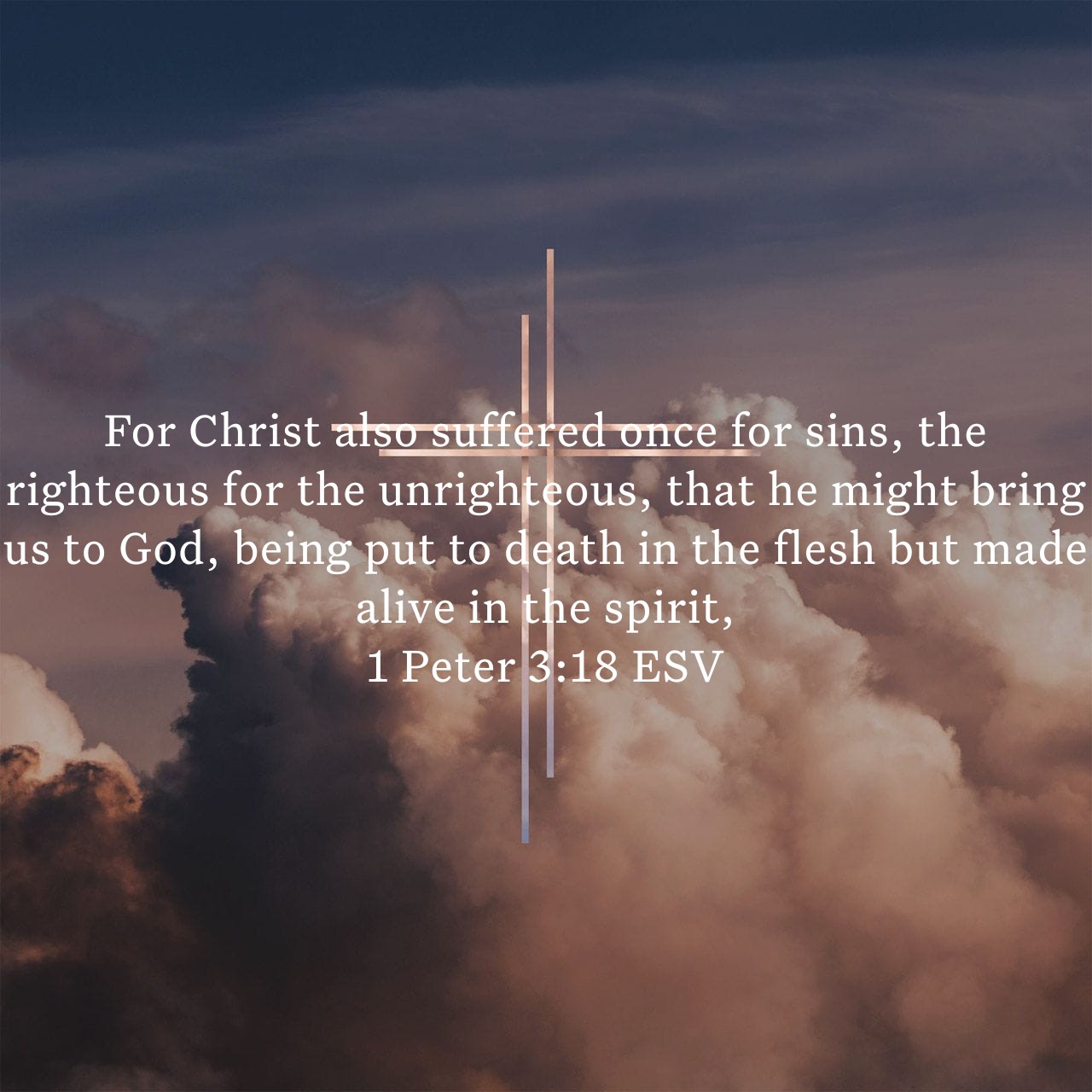Devotional 09 September 2025

Peter once said that Paul wrote “some things… hard to understand” (2 Pet. 3:16). Yet here Peter gives us a passage that is layered and weighty, requiring us to slow down. But if we do, we see his point: Christ’s resurrection stands as the hinge of history, turning what destroys the world into what saves the believer.
Peter begins with the Gospel itself: Christ, the righteous One, suffered for the unrighteous to bring us to God. Death in the flesh, but life in the Spirit. That resurrection life is the center from which everything else flows. Without it, the flood would only drown and the fire would only consume. With it, the flood becomes salvation and the fire becomes refining.
He then draws us back to Noah. The flood came as judgment on the ungodly, but salvation for Noah and his family in the ark. The same waters that destroyed the world bore the ark upward. Peter says baptism corresponds to this, not the ritual of washing, but the appeal of faith to God through Christ. Baptism doesn’t save by the water; it saves by what it points to: union with Christ in His death and resurrection (Rom. 6:3–4).
This double edge runs through Peter’s whole letter. He has spoken of trials that test the faithful “as gold refined by fire” (1 Pet. 1:7). The world stumbles over Christ as a stone of offense, but for us He is the cornerstone (1 Pet. 2:6–8). In the same way, the flood condemned the world, but carried Noah to safety. The fire of judgment consumes the wicked, but purifies the faithful.
Jesus Himself said it would be like the days of Noah (Matt. 24:37–39). People were eating and drinking, unaware until the flood came and “took them all away.” The ones “taken” were those in judgment; the faithful remained, safe in God’s provision. This overturns the fear of being “left behind.” Better to be left in Christ, as Noah was left, than swept away in judgment.
Christ is our Ark. He bore the flood of judgment, and by His resurrection carries us to God. The very fire that consumes His enemies proves us to be His people. This is both a warning and an assurance. To the world, Christ is a stumbling stone, and His return will mean destruction. To us, He is the refuge, the cornerstone, the Ark.
So when the waters rise and the fires burn, do not fear. For Christ is risen, seated at the right hand of God, with every power subjected to Him. If we are in Him, then the judgment that terrifies the world is the very flood that carries us home.